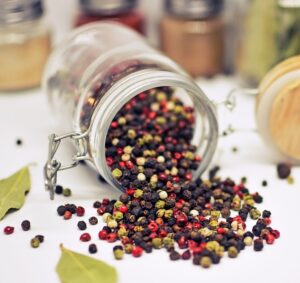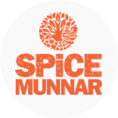One cannot imagine a world without spices that are known for their rich flavour, aroma and taste, besides their medicinal and therapeutic properties. However, there is several unverified information regarding spices in the digital world today. This period has generated a lot of attention to health and wellbeing, focusing on the measures to stay safe and healthy.
The first recorded trade routes were called spice routes, primarily because spices were the principal and most profitable goods at that time. Vasco de Gama discovering a sea route to India was a landmark event in world trade. The spice trade was the world’s biggest industry as it led to the discovery of new continents, and connected civilizations and cultures, and all of these factors contributed to laying the foundation for the modern world.
India has a rich history of the use of spices for various purposes, both for culinary and health purposes; so do many other countries.

With the onset of the pandemic, there has been a focus on preventive health care, and people have started looking for nutritional certifiers or nutraceuticals to entrust the nutritional gaps in their daily diet to boost their immune, and spices are the most preferred source. This has contributed to an increase in demand for spice as well.”
Spices remind you of the delicious Indian food as it enhances the flavour and taste of the food. Secondly, it reminds me of our grandmother’s recipes and quick fixes for ailments.” This traditional knowledge passed through generations has now been recognised worldwide, especially in times of pandemics. Spices in India are not only used in food but known for their medicinal properties too, as they are effective in curing ailments as well. Always buy fresh Spices and preserve them in airtight containers.
Spices are not commodities of trade, but they are our assets; it is time we draw global attention to spices and their medicinal value to develop safe, effective and affordable medicines to aid the world in its combat against various ailments and diseases.
The history of spices dates back centuries. The Vedas are the earliest written document on spices. Initially, spices were used to retain the freshness of the cooked food, then used as a preservative, and later to add taste and flavour to dishes. Today, spices have become an integral part of human everyday life. The trading of spices especially black pepper attracted travellers and explorers from around the globe.
Ayurveda is the longest documented history of spices and has detailed the varied uses of spices in food, to enhance flavour and its digestive power. From an appetizer, anti-depressant, or liver stimulant, it could be hyperlipidaemic, anti-cancer, anti-microbial, anti-viral, anti-oxidant, antiseptic, or anti-allergic, the uses of spices are numerous and there is a lot of scientific validation about the uses of these spices as well. Out of 109 spices available, around 20 are very common, of which 10 are widely consumed. The six global spices include black pepper, red pepper, turmeric, ginger, coriander and parsley.

Standardisation of the extract is mainly to keep the consistency of the product quality, or batch-to-batch consistency, which is very important, especially in the health food segment. Similarly, when using food colour, it should be standardised, and uniform and the nature of viscosity or the particle size should also be uniform. This standardization of herbal spice extract is very important for the health food industry.
According to Ayurvedic thought, food is not just a source of energy but also has the power to heal the body internally. Besides adding a flavoursome punch to food, spices are storehouses of antioxidants, minerals and micronutrients. Undoubtedly spices are the best natural immunity providers.


